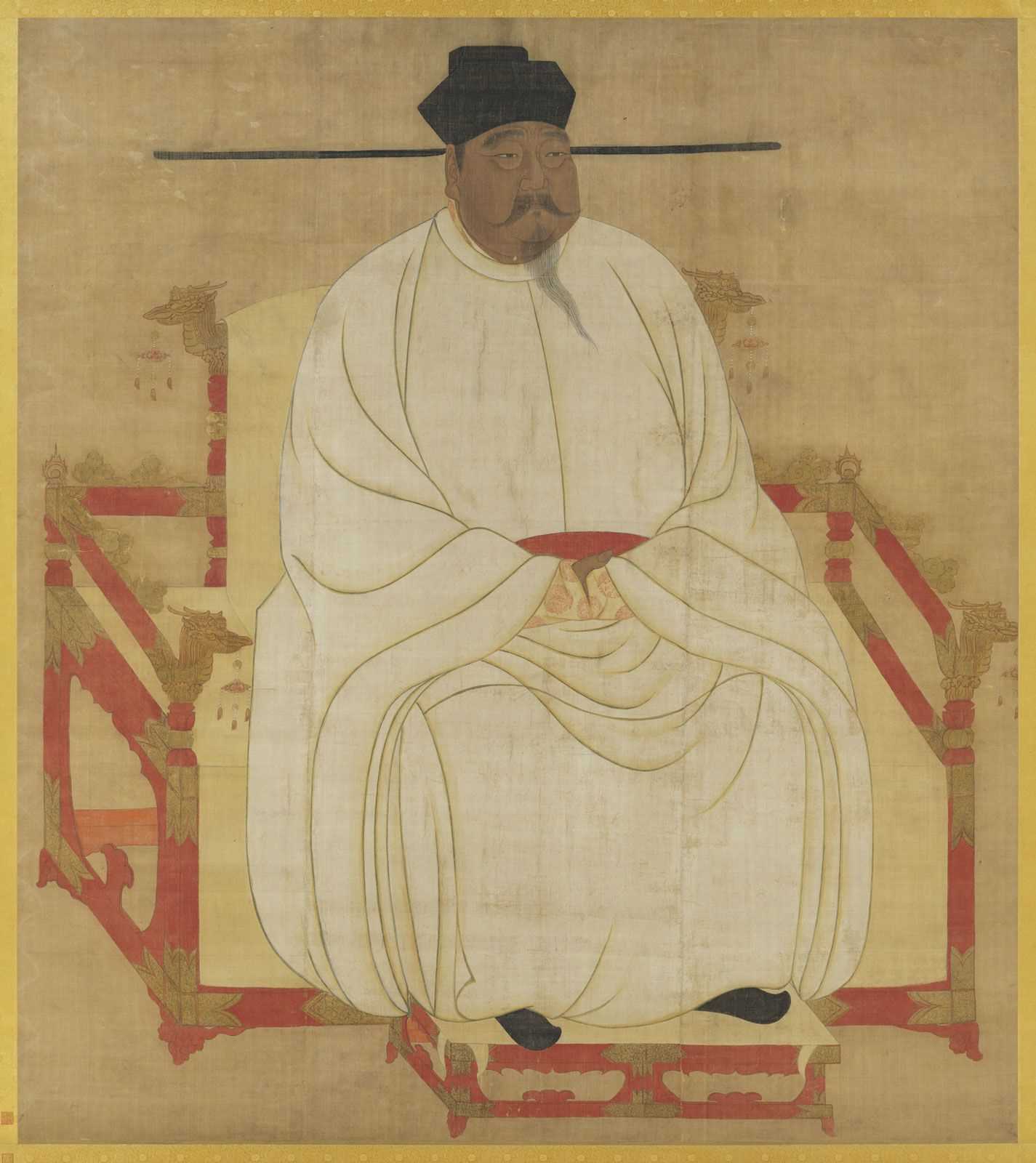
For centuries, a rigorous system of examinations shaped the leadership and governance of one of the world’s oldest continuous civilizations. These assessments were designed to select the most capable individuals to hold key administrative roles, ensuring a stable and effective government. The process was deeply intertwined with the intellectual and moral values of the time, emphasizing knowledge and virtue as prerequisites for leadership.
The structure of the tests evolved over time, becoming more complex and encompassing a range of subjects, from literature and philosophy to law and governance. This system was not only a tool for political stability but also a means of social mobility, offering individuals from different backgrounds the opportunity to rise in society based on merit alone.
The impact of this method of selection extended beyond the political realm, influencing education, culture, and the social fabric. The legacy of these examinations is still felt today, as they continue to inspire modern systems of public recruitment and meritocracy across the world.
Origins of the Examination System
The roots of the imperial selection process trace back to early dynastic periods when the need for skilled administrators became paramount. Initially, appointments to governmental positions were based on noble lineage, military prowess, or personal connections. However, over time, a more structured method emerged, aiming to assess an individual’s knowledge and virtue rather than their social standing or wealth.
The first traces of this meritocratic system appeared during the Han Dynasty (206 BCE – 220 CE), when it was realized that competent governance required more than just aristocratic birth. Scholars began to be recruited based on their understanding of Confucian principles, which emphasized wisdom, ethics, and the ability to govern justly.
The Early Foundations
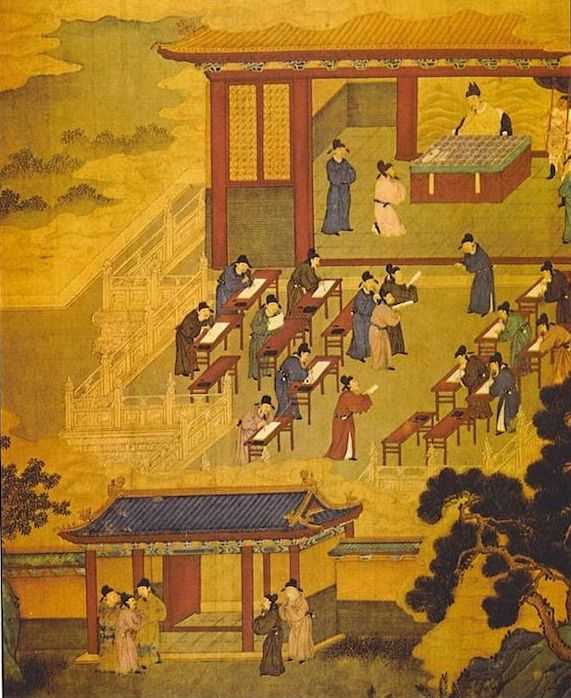
- Confucianism played a pivotal role in shaping the criteria for selecting officials, with a strong focus on moral integrity and knowledge of classical texts.
- Initially, local officials were selected through informal examinations, where candidates were tested on their abilities to read and interpret the teachings of Confucius.
- The process was further formalized during the Tang Dynasty (618–907 CE), when a more standardized and centralized system of evaluation began to take shape.
The Tang Dynasty and Beyond
By the time of the Tang Dynasty, the selection process had become more structured, with written tests being administered to assess candidates’ mastery of classical literature and moral philosophy. This system continued to evolve throughout the following dynasties, becoming an essential method for ensuring that government officials were well-educated and capable of managing the complexities of imperial administration.
- The Song Dynasty (960–1279 CE) further refined the system, introducing multi-tiered exams and formalized curriculum based on Confucian teachings.
- By the Ming Dynasty (1368–1644 CE), the examination process had reached its zenith, with imperial exams held at various levels, from local to national.
This evolution marked a significant departure from earlier methods of governance, reinforcing the idea that governance should be based on merit and ability rather than hereditary privilege.
Role of the Imperial Bureaucracy
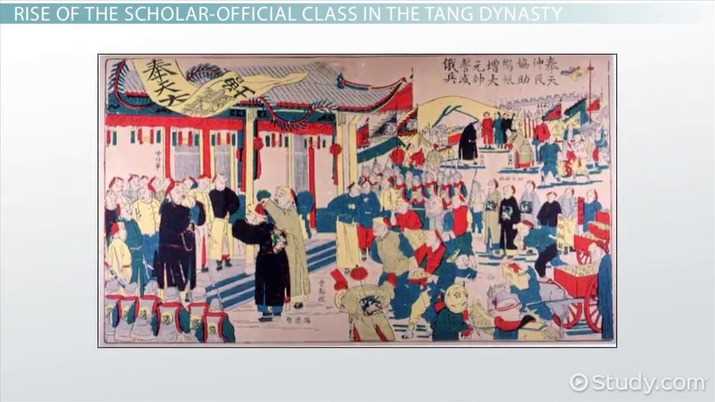
The bureaucratic structure of the empire played a critical role in maintaining stability, enforcing laws, and ensuring the smooth functioning of governance. The system of officials, selected based on their knowledge and capabilities, became the backbone of administrative control, overseeing everything from local administration to national policy. This structure ensured that imperial authority was effectively implemented across vast territories, facilitating centralized rule over a complex and diverse population.
Officials within this bureaucracy were tasked with various responsibilities, including tax collection, military oversight, public works, and judicial functions. They served as intermediaries between the emperor and the people, ensuring that imperial decrees were carried out at the local level. The integrity and competence of these officials were of utmost importance, as their actions directly impacted the welfare of the state and its citizens.
The rise of this system marked a departure from more decentralized forms of governance, where power was often fragmented among regional lords. With the development of a structured and well-organized administration, the imperial state was able to exert greater control over its domains, creating a more uniform and cohesive empire.
While this system brought significant benefits in terms of governance, it also created challenges. The increasing complexity of administration required a growing number of well-educated and capable individuals. As a result, the selection process for these officials became increasingly formalized, with rigorous assessments designed to ensure only the most qualified individuals entered the bureaucracy. Over time, the system became more competitive and hierarchical, with the highest positions reserved for those who excelled in both their academic achievements and practical skills.
Social Impacts of the Exam System
The introduction of a formalized selection process for government officials had profound effects on the social structure and mobility within the empire. By establishing merit as the primary criterion for public office, the system provided opportunities for individuals from various social backgrounds to achieve high status, regardless of their familial origins. This created a more dynamic society where intellectual and moral worth were valued over aristocratic lineage.
One of the most significant social consequences was the rise of the scholar-official class. These individuals, often from humble or modest backgrounds, were able to elevate themselves through education and success in the imperial assessments. This created a new elite, distinct from the traditional aristocracy, and contributed to a sense of social fluidity that had not existed before.
However, while the system offered opportunities for upward mobility, it also reinforced certain social hierarchies. The intense focus on education created a divide between those who could afford the time and resources to study and those who could not. Wealthy families were better positioned to support their children’s academic ambitions, often ensuring that their offspring had the best tutors, facilities, and resources to succeed in the rigorous selection process. As a result, the gap between the elite and the common people remained significant, even if the traditional nobility lost some of its exclusive grip on power.
Furthermore, the system had a significant impact on the role of education in society. Learning became a path to success, and intellectual pursuits were highly valued. This focus on scholarship shaped the culture, influencing everything from art and literature to philosophy and governance. Confucian teachings, which formed the core of the selection criteria, became deeply ingrained in societal norms, promoting the values of wisdom, virtue, and self-discipline.
In many ways, the examination system acted as a double-edged sword. While it democratized the potential for social advancement, it also reinforced a culture of competition and elitism, where only the most determined and resourceful could succeed. The system, though offering broader access to power, also created intense pressures that shaped the lives of those who participated in it for centuries.
Structure and Content of the Exams
The selection process for government officials was meticulously organized, comprising a series of challenging assessments that tested a candidate’s intellectual abilities, moral integrity, and knowledge of classical texts. These tests were designed not only to evaluate an individual’s mastery of key subjects but also to ensure that only those who embodied the qualities necessary for effective governance could succeed. The structure of the tests was both hierarchical and multi-layered, with candidates advancing through increasingly difficult stages.
The content of the assessments focused primarily on the study of Confucian texts, which were considered the foundation for effective leadership and governance. Candidates were required to demonstrate their understanding of these works through written essays, poetry, and often intricate legal interpretations. The structure varied at different levels, from local examinations to the prestigious imperial assessments, but the core subjects remained largely the same throughout the various stages.
At the lower levels of the selection process, candidates typically focused on basic literacy and knowledge of classical Confucian texts. These included the Four Books and the Five Classics, which were central to Confucian teachings. As candidates advanced, the difficulty of the questions increased, requiring deeper analysis and the application of Confucian principles to real-world governance challenges.
The most prestigious of these assessments were the national-level exams, held at the capital. These exams tested candidates on their ability to compose essays, respond to philosophical questions, and interpret ancient texts in ways that demonstrated both deep comprehension and moral clarity. Success in these exams meant not only gaining access to high government positions but also earning respect as a scholar and a public servant.
Each stage of the process was designed to ensure that only those who could balance intellectual rigor with moral discipline were chosen for positions of power. This system helped establish a government staffed by individuals who were both highly educated and deeply invested in the ethical underpinnings of their roles.
Confucianism and the Civil Service Exam
Confucianism played a central role in shaping the criteria for selecting government officials. The teachings of Confucius emphasized moral integrity, the pursuit of knowledge, and the importance of virtuous leadership. These principles were deeply embedded in the selection process, ensuring that individuals who sought public office were not only educated but also aligned with the ethical standards required to govern effectively. The ideals of Confucian philosophy were incorporated into every stage of the assessment, from local tests to the prestigious imperial examinations.
Key elements of Confucian thought were closely tied to the content and structure of the assessments. The focus on virtue, filial piety, and social harmony shaped both the nature of the questions and the expected qualities of the candidates. This system aimed to produce officials who could serve as moral examples to the population, ensuring that governance was not only efficient but also just and ethical.
- Confucian classics: The core texts studied by candidates included the Analects, Book of Documents, and Book of Songs, all of which provided lessons on governance, virtue, and human relations.
- Moral virtue: The ability to demonstrate strong ethical values was considered just as important as intellectual achievement. Candidates were expected to reflect the highest standards of conduct in both their private and public lives.
- Righteous leadership: The idea that rulers and officials should be moral exemplars who prioritize the welfare of the people was fundamental to the philosophy that underpinned the selection system.
The integration of Confucianism into the selection process ensured that governance was not solely based on technical knowledge or academic achievement. Rather, it sought to cultivate leaders who embodied the virtues of humility, compassion, and responsibility. As a result, the entire system reinforced the idea that intellectual capability and moral integrity were inseparable for effective and just governance.
Over time, Confucian principles became so deeply ingrained in the system that they influenced not only the content of the exams but also the broader cultural and societal expectations of leadership. The teachings of Confucius, with their focus on harmony, ethics, and the importance of education, continued to shape the ideal of a ruler who was both wise and virtuous for centuries to come.
Education and Training for the Exams

Preparing for the imperial selection process required years of rigorous study and specialized training. The path to success in the assessments was not only intellectually demanding but also deeply structured, with candidates following a formal educational system that emphasized mastery of classical texts and critical thinking. From a young age, individuals aspiring for governmental positions were immersed in the teachings of Confucius and other scholars, laying the foundation for their future endeavors.
Formal education began early, often within family-run schools or local academies, where young students learned to read and write, memorized key texts, and practiced writing essays. As they advanced in their studies, candidates would focus on the core subjects required for the assessment process, which included philosophy, history, poetry, and law. Education was seen as the key to success, and those who could not afford formal schooling often relied on self-study or found alternative ways to gain the necessary knowledge.
Training for the imperial exams became increasingly specialized as candidates progressed. In addition to their study of the Confucian classics, they were also expected to hone their skills in essay writing, poetry composition, and the art of argumentation. Private tutors and mentors played a significant role, offering guidance and preparing candidates for the rigorous demands of the national assessments. Many aspiring officials would spend years in isolated study, often retreating to quiet locations to focus on their work without distractions.
- Study of Confucian texts: The foundation of education was the in-depth study of key texts such as the Analects and the Five Classics, which provided the philosophical and moral framework for governance.
- Practice in essay writing: Candidates were expected to write long-form essays on a range of topics, demonstrating their ability to think critically and express their ideas clearly.
- Poetry composition: The ability to compose well-crafted poetry was considered an essential skill, reflecting both intellectual sophistication and emotional depth.
- Discipline and perseverance: The study regimen was intense and required a high degree of self-discipline, as candidates spent long hours mastering both the content and the required skills for the assessments.
The education system surrounding the selection process was thus a transformative experience, shaping not only the intellectual capabilities of candidates but also their character and work ethic. Success in the exams was not simply a matter of memorization; it required a deep understanding of the principles of governance and a commitment to the ideals of good leadership. Through this comprehensive and demanding preparation, candidates were groomed to become officials who could effectively serve the empire while embodying the moral values essential to the role.
Evolution of the Examination Process
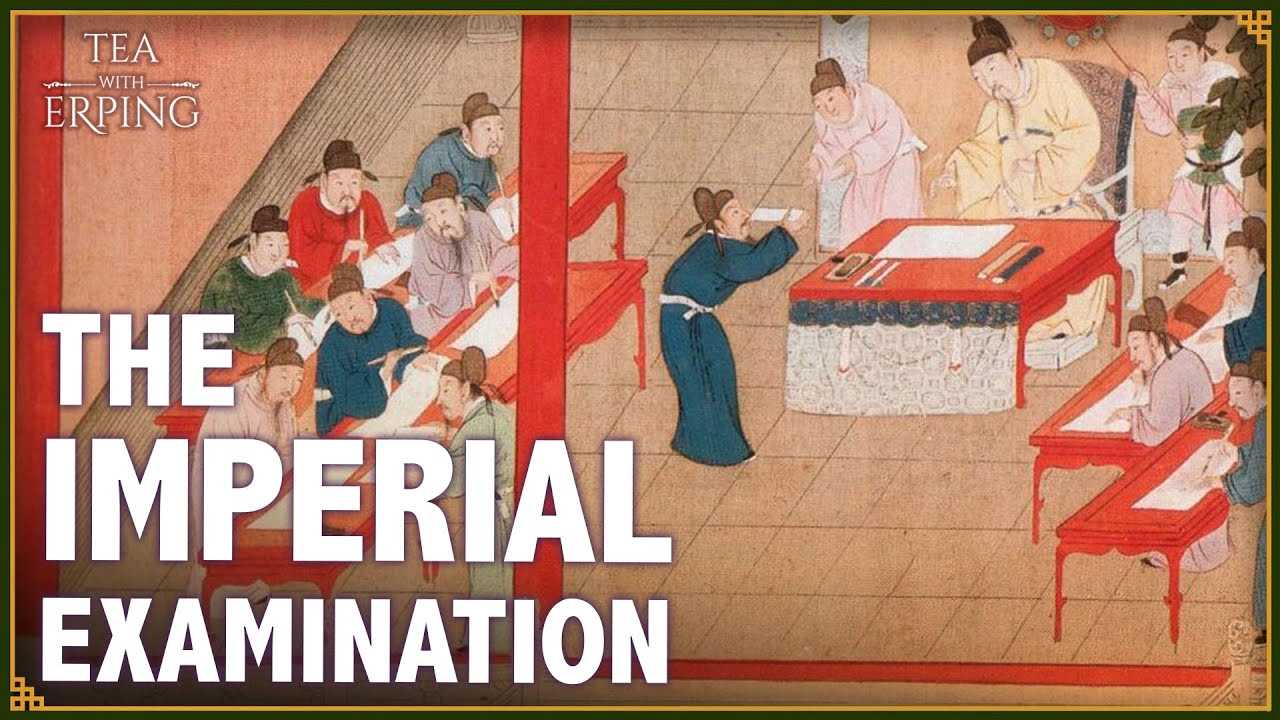
The process of selecting officials through formal assessments evolved over centuries, adapting to the changing needs and priorities of the state. Initially, the system was simple and localized, but it gradually expanded and became more complex as the empire grew in size and sophistication. Over time, the structure and content of the tests were refined to ensure that only the most capable and virtuous individuals were chosen to serve in government positions.
The earliest forms of selection were not as standardized as the later imperial system. Early assessments often took place at the local level, where candidates would be judged on basic knowledge and their ability to write or speak persuasively. However, as the state grew and governance became more centralized, the need for a more structured and consistent method of selection became evident.
- Initial stages: The selection process was based on local competitions and informal assessments of candidates’ intellectual abilities. These early tests focused on basic education, with emphasis on literacy and moral conduct.
- Centralization: As the empire expanded, the process became more standardized, with centralized assessments being introduced at the provincial and national levels to select officials for the central bureaucracy.
- Formalization: During the Tang and Song dynasties, the exams became more formalized, with set criteria for evaluation and fixed dates for testing. The focus shifted to more advanced subjects such as philosophy, law, and literature.
- Expansion of content: Over time, the examinations expanded in scope, incorporating more subjects such as history, governance, and poetry. These changes reflected the evolving demands of the imperial government, which required officials with a wide range of skills.
By the time of the Ming and Qing dynasties, the system had reached its peak, with multiple levels of exams held across the empire. Candidates at the highest level were tested on their ability to compose essays on political and philosophical topics, and their success was often a reflection of both their intellectual abilities and their moral integrity. The structure became increasingly rigid, with a set curriculum and standardized procedures for testing, further solidifying the link between academic success and political power.
Despite the rigidity, the system was not without its critics. Over time, many questioned the fairness of the process, particularly in how it reinforced social inequality. While the system initially allowed for some degree of upward mobility, in practice, the costs of preparation and the difficulty of succeeding often favored the wealthy and elite.
The evolution of this process reflects a changing balance between the need for a competent bureaucracy and the philosophical and moral values that underpinned the selection of officials. Over centuries, the system grew more structured and formal, but it also remained a tool for reinforcing societal hierarchies and shaping the nature of governance itself.
Success and Failure in the Exams

The journey to succeed in the imperial selection process was a high-stakes challenge that carried significant social and personal implications. Success could lead to high-ranking positions within the government, while failure often meant returning to a life of obscurity or limited prospects. This dynamic created a system where intense preparation, unwavering determination, and sometimes, sheer luck, played a central role in determining an individual’s future.
Success in the process was a reflection of both intellectual prowess and moral virtue. Candidates who excelled demonstrated not only an understanding of complex subjects like philosophy and law but also the ability to embody the values of leadership and governance. Those who passed the rigorous tests often became part of the prestigious government bureaucracy, enjoying both social mobility and influence. Success also offered prestige to families, as having an official in the family was seen as a mark of honor.
- Social and political elevation: Candidates who succeeded in the highest levels of the process gained positions in the government, often with significant power and authority. These roles were highly respected and allowed individuals to influence policies and decisions.
- Family honor: Success not only elevated the individual but also brought social recognition to their family. Being selected as an official was a rare achievement, and it reflected positively on one’s family lineage.
- Legacy of learning: Success was often the result of years of preparation and study, and those who succeeded were often celebrated as scholars and exemplars of intellectual achievement.
On the other hand, failure in the selection process could have serious consequences. Candidates who were unable to pass the exams often faced harsh realities, particularly if they had devoted years of their lives to preparation. For many, failure meant the end of their aspirations for public office and a return to a life of limited opportunities. While some might try again, many failed to pass multiple times, making their chances of success increasingly remote.
- Psychological toll: Repeated failures often led to emotional and psychological strain. For some, the pressure to succeed in these high-stakes tests led to despair, and failure could tarnish their reputation.
- Social impact: Failure did not only affect the individual but could also be seen as a disappointment to the family, diminishing their status in society.
- Financial strain: The cost of preparing for the assessments was high, and repeated failure often placed an immense financial burden on candidates and their families.
The outcomes of these trials were never just about individual achievement but also reflected broader social dynamics. While success in the process could bring honor and power, failure often highlighted the limitations of the system, particularly the challenges of achieving success without significant resources or familial connections. As a result, success and failure in these assessments were not only personal milestones but also indicators of the broader structure of opportunity within society.
Impact on Governance and Society
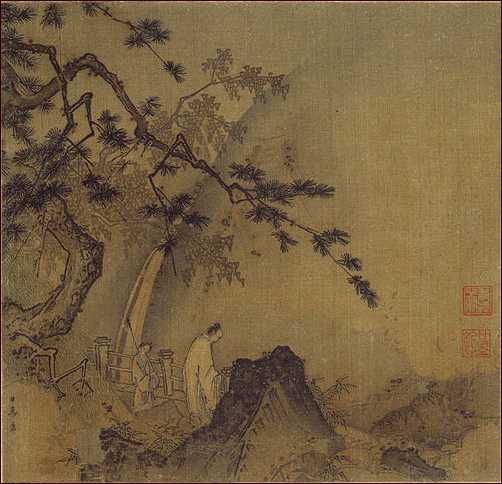
The selection process for officials had far-reaching consequences for both governance and social structure. By placing emphasis on education, moral conduct, and intellectual abilities, it shaped the character of those in power and established a more meritocratic approach to leadership. This system had a profound effect on the functioning of the state and the overall social dynamics, as it determined who held authority and how society valued education and social mobility.
Influence on Governance
The establishment of a merit-based selection system directly impacted the efficiency and integrity of the government. By prioritizing knowledge over aristocratic connections, it led to a more professional and capable bureaucracy. Officials chosen through these assessments were expected to be well-versed in governance, law, and philosophy, thus ensuring that the state was managed by individuals with the necessary expertise to lead effectively. Over time, this created a system where competence was prioritized over family heritage.
| Benefit to Governance | Example |
|---|---|
| Merit-based appointments | Officials were selected based on their intellectual capabilities and moral virtues, not just their lineage. |
| Increased government efficiency | The focus on education and knowledge led to better-trained officials who could manage complex state affairs. |
| Promotion of stability | Officials were trained to understand state philosophy, law, and governance, contributing to the stability of the state. |
Social Implications
On the societal level, the system had significant effects on class structure and social mobility. While it provided a path for individuals from humble origins to rise in status, the high costs of preparation and the intense competition often meant that only those from wealthier backgrounds had the resources to succeed. This reinforced social inequality, as access to education and resources became a key determinant in one’s ability to achieve success. However, for those who did manage to pass, it offered a unique opportunity to challenge the established social hierarchy.
| Social Impact | Effect |
|---|---|
| Social mobility | Individuals from lower social classes could rise to positions of power based on intellectual merit. |
| Reinforcement of social hierarchy | The high costs and long preparation periods favored the wealthy, limiting opportunities for the poor. |
| Educational value | It promoted the importance of education and intellectual development as core values within society. |
The system’s impact was thus twofold: it modernized governance by introducing a more professional bureaucracy, while also reinforcing societal divisions that often favored the elite. Despite these challenges, it undeniably shaped the direction of governance and education, leaving a legacy that influenced future political and social structures.
Famous Scholars and Success Stories
The rigorous selection process produced countless success stories, with many scholars rising from humble beginnings to become influential figures in governance, literature, and philosophy. These individuals not only excelled in the tests but also made lasting contributions to the intellectual and cultural development of their society. Their stories often served as inspiration for generations to come, showcasing the transformative power of education and determination.
Notable Scholars
Several renowned scholars achieved great success through the selection process, leaving a legacy that extended far beyond their official roles. These individuals often held high positions within the state, but their influence was equally marked by their writings and teachings. Some of the most famous figures include:
- Zhu Xi – A Confucian philosopher whose work became a cornerstone of East Asian thought. His interpretations of Confucian texts shaped education and governance for centuries.
- Wang Anshi – A statesman and reformer known for his innovative policies and his contributions to economic and social theory. His success in the selection process led him to significant political influence.
- Sima Qian – A historian and scholar who is considered the father of Chinese historiography. His work, the Records of the Grand Historian, has had a profound impact on the way history is recorded and understood.
Inspirational Success Stories
Many candidates’ journeys to success are nothing short of extraordinary, particularly those who overcame considerable obstacles to achieve their goals. These individuals often came from disadvantaged backgrounds and faced significant challenges, including poverty, limited access to education, and familial expectations. Despite these difficulties, their persistence paid off, and they ascended to high levels of government or intellectual prestige. Their stories are a testament to the transformative power of hard work and dedication.
- Xu Shen – A scholar who grew up in a poor family, Xu Shen’s passion for learning led him to pass the grueling selection process and later become a key figure in the development of the Chinese lexicon through his work on the Shuowen Jiezi, one of the earliest dictionaries.
- Li Shizhen – A renowned physician and pharmacologist who, despite early setbacks in his academic journey, became a celebrated figure for his comprehensive work on traditional medicine, the Bencao Gangmu.
- Dong Zhongshu – Born into a family of low status, Dong Zhongshu became one of the most influential Confucian scholars, playing a crucial role in promoting Confucianism as the state philosophy of the Han Dynasty.
The stories of these remarkable individuals are not just about their personal triumphs but also reflect the broader cultural values placed on education, perseverance, and intellectual achievement. Their success in passing the imperial assessments often marked the beginning of a career that would shape the future of the state and society.
The Role of Exams in Social Mobility
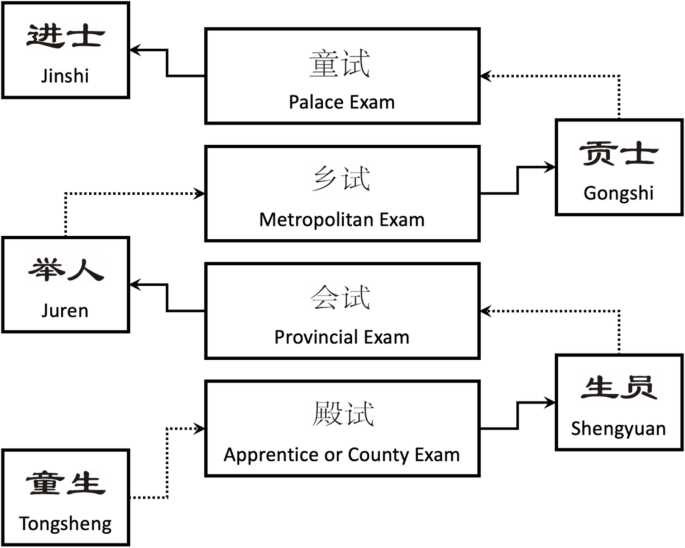
The assessment system played a pivotal role in shaping social mobility, offering individuals from various backgrounds a chance to ascend the social ladder based on their intellectual abilities rather than their birth status. The rigorous selection process emphasized education, merit, and personal achievement, creating a pathway for those from lower social classes to rise to positions of power and influence. Despite the challenges and intense competition, this system offered hope to many who sought to change their societal standing.
Impact on Social Classes
While the system did allow for some degree of social mobility, the process was far from equitable. The competition was fierce, and success often depended not only on one’s intellectual abilities but also on access to education and financial resources. Wealthier families could afford extensive tutoring, while those from poorer backgrounds faced considerable barriers. Nevertheless, many individuals managed to overcome these challenges and succeeded despite limited resources, creating success stories that inspired others.
| Social Class Impact | Outcome |
|---|---|
| Lower Classes | Provided opportunities for upward mobility through education, though financial barriers remained a challenge. |
| Elite Families | Had access to superior education and training, often increasing their chances of success in the system. |
| Merit-Based Opportunities | The system allowed some talented individuals to overcome social and economic disadvantages and rise to prominence. |
Educational and Economic Barriers
Despite its potential for social mobility, the system’s demands often left the poor at a disadvantage. The long years of study required to pass the assessments meant that only those with financial means could afford to dedicate themselves to preparation. Additionally, the extensive and expensive education needed to pass the exams led to a concentration of opportunities among the wealthier classes, reinforcing the divide between the rich and poor. However, those who managed to break through these barriers were often celebrated as examples of perseverance and intellectual triumph.
In summary, while the system allowed for some measure of social advancement, it was not an equalizer for all. Success in these assessments was both a symbol of merit and a reflection of the barriers inherent in the broader society, offering opportunities for some but remaining out of reach for many.
Criticism of the System
While the assessment system was praised for promoting merit-based selection and offering opportunities for upward mobility, it also faced significant criticism over the centuries. Many argued that the system was far from perfect, and its flaws became increasingly apparent as it evolved. Critics pointed out various issues, including its emphasis on rote memorization, lack of practical skill assessments, and the social inequalities it perpetuated despite its promises of fairness.
Focus on Memorization Over Practical Skills
One of the primary criticisms of the system was its heavy reliance on rote memorization. The tests primarily evaluated candidates’ ability to memorize classical texts, particularly Confucian teachings, rather than their practical problem-solving skills or innovative thinking. This approach often rewarded those with the resources to study the vast array of texts but did not necessarily identify individuals with the most useful or practical talents for governance.
- Limited focus on critical thinking: Many argued that the system failed to assess a candidate’s ability to think critically or handle real-world challenges, instead favoring those who could recall texts verbatim.
- Emphasis on traditional knowledge: The focus on Confucian classics led to stagnation in governance, as new ideas and reforms were often sidelined in favor of preserving established norms.
Reinforcement of Social Inequality
Despite its meritocratic ideals, the system also reinforced social inequalities. While it offered the potential for individuals from lower social classes to rise through the ranks, in practice, it often favored the wealthy, who could afford extensive preparation, private tutors, and years of education. The cost of preparation and the long periods of study required to succeed in the assessments meant that the system was often inaccessible to the poorest segments of society.
- Economic barriers: Poorer candidates often lacked the resources to undergo the necessary training, creating a system that was more favorable to the elite.
- Concentration of power: Those who succeeded in the assessments often came from the same socioeconomic backgrounds, leading to a concentration of political power in the hands of the wealthy.
In conclusion, while the system was a cornerstone of governance and had its merits, its drawbacks became increasingly evident. The lack of practical assessments, the heavy reliance on memorization, and the reinforcement of existing social hierarchies were key points of critique that shaped ongoing debates about the fairness and effectiveness of the selection process.
Decline and Abolition of the Exams
The system that had once been a cornerstone of governmental selection began to face significant challenges by the late 19th and early 20th centuries. As the world modernized, the traditional methods of governance, including the use of rigorous written assessments, became increasingly out of step with new ideas and global trends. Political, social, and economic factors all played a role in the eventual decline and eventual abolition of this long-standing system.
One major factor in the system’s decline was the growing influence of Western ideas during the period of modernization. Many reformers argued that the traditional methods were outdated and ineffective in the face of changing global dynamics. The exams had become more of a formality than a genuine measure of merit, and as new educational philosophies emerged, they began to replace the old system of selection based on memorization of classical texts.
- Western influence: With the expansion of Western imperialism, new forms of education and governance were introduced that focused more on practical skills and scientific knowledge, challenging the relevance of the traditional system.
- Internal reform movements: Reformers within the country also called for modernization, recognizing that the system of examinations no longer met the needs of a rapidly industrializing society.
Additionally, the rise of corruption and nepotism within the system further undermined its legitimacy. As the exams became more about passing the tests through wealth and connections rather than actual merit, public trust in the process eroded. This, combined with the increasing inability of the system to keep up with the demands of a changing society, led to growing calls for its dismantling.
- Corruption: Over time, bribery and nepotism became widespread, with wealthier candidates often securing positions through illicit means, leading to widespread dissatisfaction.
- Economic pressures: The growing cost of education and preparation made the exams inaccessible to many, especially in rural areas, further contributing to the system’s decline.
In 1905, following years of pressure from both internal and external sources, the imperial government officially abolished the examination system. This marked the end of an era that had lasted for over a millennium, and the shift towards a more modern, merit-based approach to governance began. Despite its eventual downfall, the examination system left a lasting legacy, influencing later education systems and continuing to serve as a symbol of meritocracy and the pursuit of knowledge.
Modern Influence of the Civil Service Exam
The legacy of the traditional selection process for government officials continues to shape contemporary systems of recruitment and assessment around the world. Although the system itself was abolished over a century ago, its core principles, such as meritocracy and the value of education, persist in many modern practices. From competitive entrance tests to professional qualification assessments, the influence of this historical process can still be seen in the structure of modern bureaucracies.
One of the most enduring aspects of the old system is the concept of merit-based selection. The emphasis on intellectual ability, diligence, and education as the primary criteria for public office continues to be a cornerstone in many modern societies. The idea that individuals should be chosen based on their skills and knowledge rather than their social status or family connections remains a powerful tool for fostering fairness and efficiency in governance.
Global Impact on Educational Systems
Modern educational systems, especially in countries with large bureaucratic institutions, have borrowed heavily from the traditions of merit-based selection. Many countries now use rigorous testing as a way to select candidates for government positions, a practice that mirrors the historical system’s use of written assessments to determine eligibility for official roles. This form of educational testing helps ensure that individuals entering government service possess the necessary qualifications and knowledge to perform their duties effectively.
- Competitive Entrance Exams: Many countries, especially in Asia, continue to use exams similar in structure to the historical model for selecting candidates for civil service positions.
- Standardized Testing: Systems such as the GRE or LSAT in the United States, or the UPSC exams in India, draw from similar principles of testing knowledge and ability in specific fields.
The Rise of Meritocracy in Governance
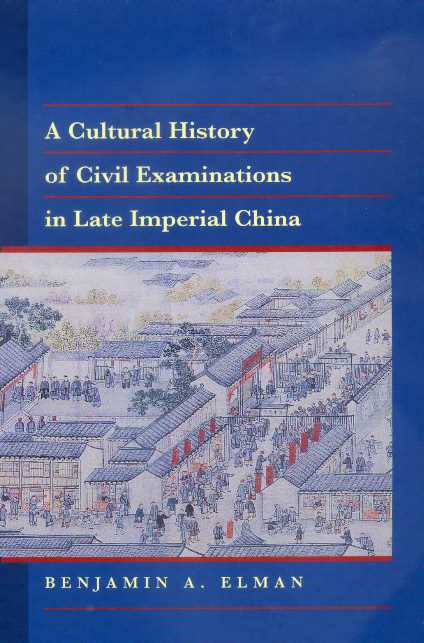
Modern governance systems that prioritize meritocracy–where decisions are made based on individual qualifications rather than personal connections–reflect the lasting influence of the traditional selection process. The idea that hard work and intellectual prowess should determine a person’s ability to rise through the ranks of the government has been embraced worldwide, particularly in nations striving for greater transparency and equality. The principle of meritocracy continues to guide recruitment and promotion processes in various governmental and professional sectors.
- Professional Development: Modern civil service exams and tests often focus not just on academic knowledge, but also on problem-solving skills and practical expertise, similar to the evolving trends in the ancient system.
- Promotion Based on Merit: In many governments today, promotions are often determined by exams and performance reviews, reflecting the values that originated from the traditional selection methods.
While the original selection process may no longer exist, the values and practices it championed continue to influence the structure of modern governmental and educational systems. The enduring legacy of merit, knowledge, and intellectual rigor is as relevant today as it was centuries ago.